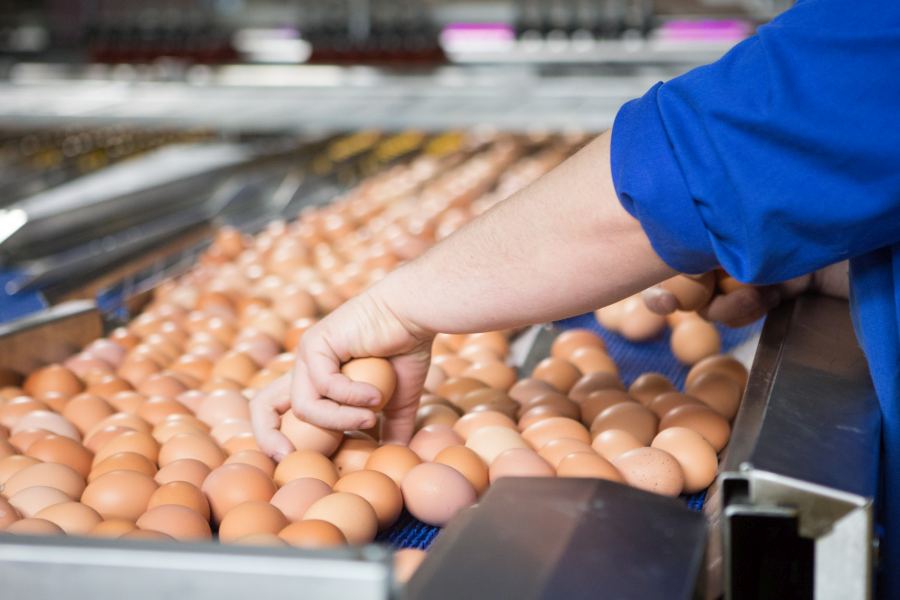Farms in 'perilous situation' due crippling labour shortages

The government must develop a flexible policy on labour after an official parliamentary report criticised its failure to tackle post-Brexit labour shortages, farm leaders have urged.
The Environment, Food and Rural Affairs (EFRA) committee has published a report warning that the food and farming industry faces permanent damage if the government fails to address the lack of workers due mainly to Covid-19 and Brexit.
After conducting an inquiry, MPs on the committee said that despite the sector flagging significant concern, the shortage of labour in 2021 took a toll on food security, the welfare of animals and the mental health of those who work in the industry.
Committee chairman Neil Parish said the government’s attitude to the plight of food and farming workers was particularly disappointing.
“While some of the reforms put forward by government have helped in the short term, and we agreed that we must look to expand the domestic workforce - this won’t happen overnight.
"In the meantime, it must use the powers available - including over immigration policy - to support the sector. Otherwise we will export our food production and import more of our food.
“Even more importantly, government must change its attitude to the food and farming sector - trusting them and acting promptly when they raise concerns. Our food and farmers depend on it.”
In the wake of the Brexit referendum a survey for the British Egg Industry Council (BEIC) showed that between 55 and 60% of those working in packing centres were from other EU countries. Between 35 and 40% of those working on farms were from EU countries.
Following the EFRA committee report, Mark Williams, chief executive of the BEIC, said that the report into labour shortages had delivered “a stark warning to all parliamentarians and the UK government that the situation is perilous.”
Every sector of British farming had been severely impacted by the government’s refusal to accept the reality of a post-Brexit, post-Covid Britain - that there were not enough workers, he said.
The government had announced that it would extend the seasonal worker visa route to 2024 to allow workers to stay up to six months, but admitted this would largely serve the edible and ornamental crops sectors.
“This does little to nothing to improve food security or to prevent the UK’s largest manufacturing sector, food and drink, from suffering permanent and irreversible damage,” said Mr Williams
“The British egg industry operates seven days a week, 365 days a year, there are no on-peak or off-peak months or seasons, and our farms and packing centres need a steady and reliable source of labour."
He added: "There is also a degree of automation in the laying sector, but many on-farm jobs or logistical roles such as drivers cannot be automated.
"The government must revaluate the situation and look to develop a flexible policy on labour, that finds a balance between domestic workers and workers from overseas."
NFU President Minette Batters said the EFRA report backed up the NFU’s long-standing call for a more enabling immigration policy to mitigate against the crippling labour shortages that had existed throughout the food supply chain for many months.
“To ensure stability in domestic food production, the government needs to act urgently to give farmers and growers the confidence they need to invest in domestic production and enable British food and farming to thrive,” she said.
“The NFU, alongside the whole food supply chain, continues to seek a review of the current immigration system, including the Shortage Occupation List and Seasonal Worker Scheme as recommended by the Migrant Advisory Committee 20 months ago.
"This would help ensure that the labour needs of the food supply chain are met and help to shore up the estimated 500,000 vacancies left unfilled across the food and farming industry."
The NFU president said these vacancies threatened the UK's food security, and its ability to contribute to the nation’s economy through increased exports.
“Farm businesses are working hard to recruit staff domestically, but even sharply rising wages have had little impact because the labour pool is so limited," she added.
"Instead, this only adds to production costs at a time when we are also facing rapidly rising costs on farm and continued global uncertainty due to the conflict in Ukraine and the real possibility of a crisis of confidence among the nation’s farmers and growers.
“A solution to this crisis will need the right people with the right skills and training available in rural areas where many roles are based.
"In addition, we are asking government to release the additional 10,000 visas it already can under the Seasonal Workers Scheme, which are needed to ensure labour shortages are kept to a minimum as we reach peak harvest time.”
The EFRA committee said in its report that it was frustrated by the reluctance of the government to engage with the industry over labour shortages.
“Despite valiant attempts by the industry, Ministers failed to understand the issues and even sought to pass the blame onto the sector," it said.
"Today’s report urges government to have a radical rethink to prevent future interventions coming too late."
Revised immigration measures could address the current crisis. It called for a review of the Skilled Workers Visa scheme, including the complexity and costs faced by employers, and tailoring the English language requirement to meet the needs of the sector.
But it said that a reliance on overseas labour must be reduced in preference for a long-term labour strategy that grew and developed home-grown talent, combining attractive education and vocational training packages with the deployment of new technology.
While the committee welcomed some of the government’s work in the area, it warned that without fundamental change the UK was facing a chain reaction of wage rises, leading to price increases and food production being exported abroad.








